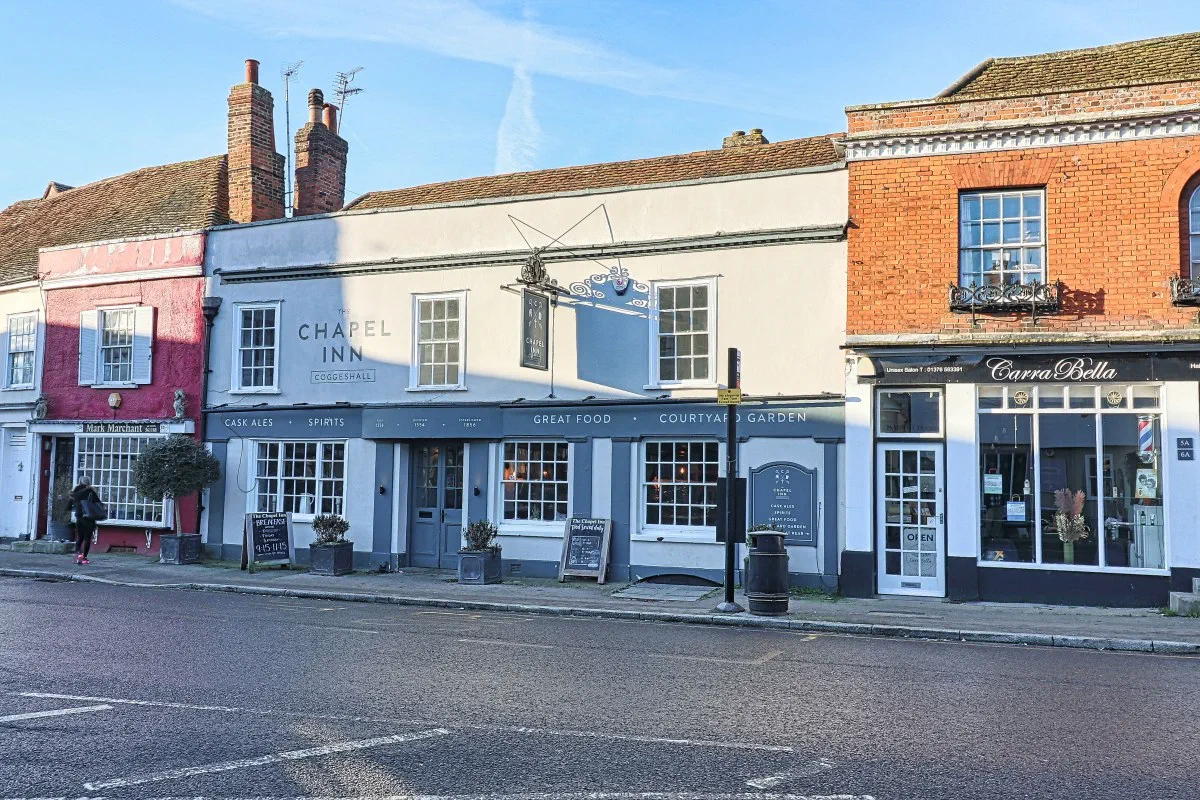Crime and Punishment 1: Two cases of Manslaughter.
On the 21st October 1826 a young man, James Owers, aged 19, was killed just north of Coggeshall.
The evening began at the Chapel Inn where about forty of Mr Osgood Hanbury's employees, from Holfield Grange, gathered for a drinking session, otherwise known as a "Largess". Among them were John Goodey, aged 58, a woodward, and his son. As a woodward it was his job to protect the orchards and woodlands, meaning that he sometimes had to report those stealing nuts or fruit or timber. This could cause resentment.
During the evening, an oysterman called Evans arrived to sell his wares and a disturbance began in which Evans called out the younger Goodey to a fight. Ignoring his father's advice, he went into the yard, fought Evans and beat him. This attracted a crowd of Coggeshall men, leading Hanbury's workforce to fear an attack.
By this time it was one in the morning. The landlord suggested that they leave by the front entrance which they did, making their way back to Holfield Grange across the fields. However, they were pursued by a group of Coggeshall men, including James Owers, who was to the fore.
As the two groups met, Goodey Senior drew out a pocket knife. James Owers was wounded on the arm - quite a small wound, but it bled copiously. The Coggeshall group pursued Goodey, caught him and beat him. Owers, meanwhile, was bleeding to death, the cut having severed an artery. Even so, his life might have been saved by simple first aid.
When Goodey appeared in court it was said that he had been employed for forty years on the Hanbury estate and was a man of good character. He was lucky to avoid a charge of murder as the crucial point was that he had drawn a knife. He was convicted of manslaughter and sentenced to six months hard labour.
This case illustrates several things about life in Coggeshall at that time. A workforce of forty men employed on a country estate all drinking together was clearly seen as a challenge by the town-dwellers, particularly those who had crossed paths with the woodward. The role of the oysterman was the spark which ignited the fire here, but he was not the one who died, or indeed lost his liberty. Heavy drinking undoubtedly played a part. The words Goodey is reported as saying on the night are in striking contrast to his expressions of remorse and regret when sober.
Today the Chapel Inn still serves customers on Market Hill, unlike so many of the other pubs and beer-house which have closed over the years - the Fleece, the Portobello, the Cricketers, the Yorkshire Grey, the Alexandra...


Comments
Post a Comment